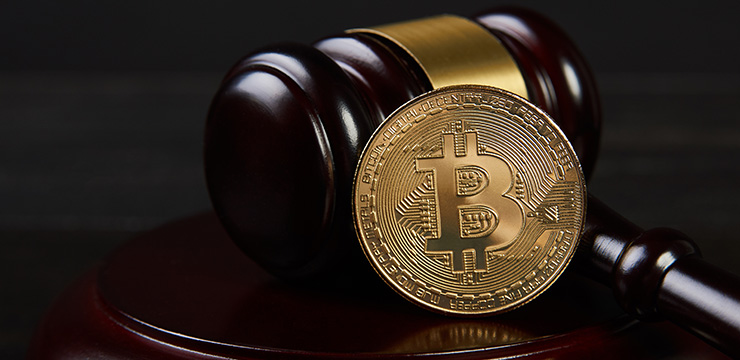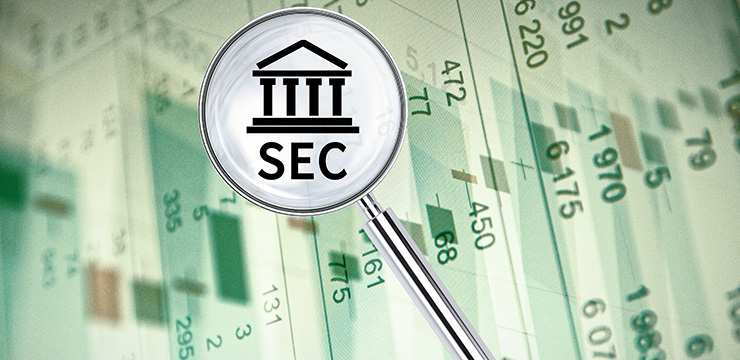The battle in federal court between the SEC and Telegram continues to progress at breakneck speed. The SEC commenced its action less than four months ago, on October 11, 2019, by seeking a temporary restraining order against Telegram Group Inc. and TON Issuer Inc. (collectively, “Telegram”). That same day, Judge Castel in the Southern District of New York granted the SEC’s TRO request and ordered expedited discovery. Months of intensive discovery ensued that culminated with both parties filing cross motions for summary judgment on January 15, 2020.

At the center of the dispute is whether issuers of digital tokens can avoid registering their sale with the SEC by issuing them pursuant to “SAFTs,” or Simple Agreements for Future Delivery. SAFTs are commercial instruments used to convey rights to digital tokens to sophisticated investors prior to the development of the functionality of the platform on which the tokens are designed to operate. Issuers usually treat SAFTs as securities and offer and sell them pursuant to the exemption from registration in Rule 506(c) of Regulation D under the Securities Act of 1933. The digital tokens are later issued pursuant to the SAFTs once the platform for which the tokens were designed to use is “fully functional.” The theory is that once use-cases exist for the tokens, they no longer constitute securities, but rather utility tokens that can be distributed as commodities or currency without being subject to regulation as securities by the SEC. The SEC action against Telegram based upon its SAFTs and intended issuance of Grams is the first litigated case to contest that theory.
According to the SEC, from January 2018 to March 2018 Telegram entered into SAFTs with sophisticated investors for the future delivery of Grams. Grams have not yet been delivered. In its TRO motion, the SEC argued that the Grams were securities at the time the SAFTs were executed and the temporal separation between the signing of the SAFTs and delivery of the Grams upon the launch of the fully functional Telegram platform (the “TON Blockchain”) is immaterial and does not change the nature of the Grams themselves. The SEC further argued that upon delivery of the Grams to the SAFT investors, those investors will be able to resell the Grams without restrictions. “Once these resales occur, Telegram will have completed its unregistered offering” for which no exemption from registration exists.
In opposition, Telegram argued that the Grams must be separately analyzed from the SAFTs under the federal securities laws. Telegram contended that the Grams are not securities because they “do not exist and may never exist.” Rather, under the SAFTs, Telegram represented that it will create and distribute Grams only upon the launch of a “fully functional TON Blockchain,” which will provide Gram’s use-cases; that is, once the TON Blockchain is launched, Grams will be able to be used for, among other things, payment for physical and digital products and services, commission paid to TON validators for processing transactions and smart contracts, voting on parameters of the protocol, and payment for services provided by third-party applications on the TON Blockchain.
The SEC is expending significant resources in this case. It recently submitted to the Court expert opinions to support its position that token sales are offerings of securities subject to its regulation. Together, these opinions are intended to buttress the SEC’s argument that Telegram’s offering satisfied the Howey test and qualified for no exemption from registration:
- A financial economist at the SEC’s Division of Economic and Risk Analysis, Carmen A. Taveras, Ph.D., provided an opinion that the price at which Grams are sold increases exponentially over time and is a function of the total number of Grams in circulation. As a result, the price at which purchasers who bought Grams pursuant to the SAFTs is significantly discounted to the price at which Grams will be available for purchase by subsequent buyers. The opinion also disputed Telegram’s representation in promotional materials that it will maintain price stability following the launch of the TON Blockchain by setting up a “TON Reserve” to strategically buy and sell Grams. Taveras concluded that the TON Reserve’s ability to buy and sell Grams would likely have a limited effect on curbing sudden spikes and dips in the price of Grams.
- A blockchain data scientist in private practice, Patrick B. Doody, opined that while it is reasonable for private placement purchasers to buy Grams expecting to profit by selling them in the secondary market, Grams are unlikely to attract investors seeking a “realistic currency option to buy goods and services.” Telegram’s promotional materials appealed to potential investors seeking to profit through resales, while providing short shrift to factors that would enhance Grams’ viability as a currency, including fraud prevention, theft, integration with existing banking relationships, compliance with financial regulations, and price stability such as that which can be achieved by pegging the price of Grams to a fiat currency.
- An expert in the field of computer science at Brown University, Maurice P. Herlihy, Ph.D., opined that the publicly released version of the TON Blockchain code lacks critical components that would be required in a fully developed and running system, and users cannot evaluate the security and effectiveness of the TON Blockchain in its current state. Moreover, the TON Blockchain is not yet mature enough to support the suite of services described in TON public documents.
Taken together, the SEC’s experts took the position that (1) Telegram SAFT investors reasonably expected to profit from Telegram’s efforts to develop the TON Network, and (2) that the current state of the TON Network reveals it is not yet mature enough to support the suite of services promised by TON’s public documents.
Telegram also retained its own expert, Stephen McKeon, who holds a Ph.D. in management with a finance focus and a master’s degree in economics. McKeon’s expert report rebuts the SEC’s experts by opining that (1) the profit expectations of SAFT investors is independent from, and not relevant to, the expectations of purchasers following the TON Blockchain launch, and (2) that most TON Network “components are complete or nearing their completion and will be fully available to the TON blockchain users at the launch of the mainnet.”
As further evidenced by the filing of amicus briefs by the Chamber of Digital Commerce and the Blockchain Association, the stakes for the industry in this case are high.



